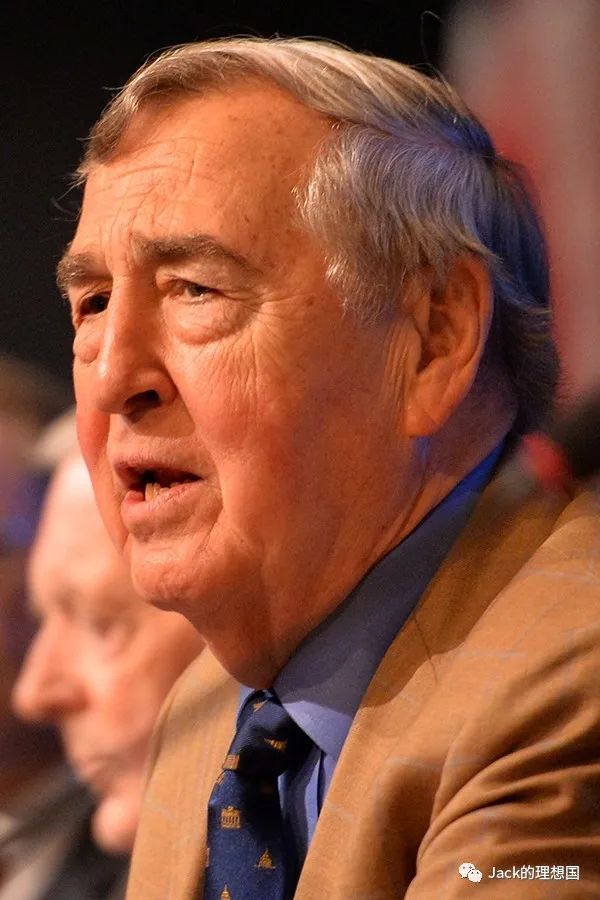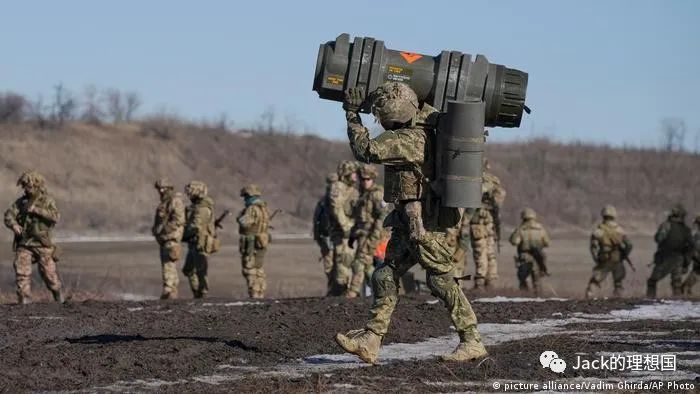Read History with Jack 46 - On Warfare 论战争
Introduction
Prior to the Russia-Ukraine War ("Ukraine War"), even though there were regional skirmishes, most people still take the global peace as granted. This assumption that war has not been a frequent and relevant phenomenon in history is both inaccurate and dangerous. For the past thousands of years, humans have been fond of using the tools of warfare to settle disputes and reap profits. From the clashes between the first Sumerian city states for resources 4000 years ago, to the crusades and wars over religious orthodoxy during the Middle Ages or early Renaissance, and to the two World Wars, the bloodshed that wars have caused is unfathomable. People believe the modern world is peaceful because looking back at the past 70 years or so, the human race has, rather miraculously, controlled the desire to wage large-scale wars by making better decisions. However, as the current situation in Ukraine and other war-torn regions globally have proved, this system of peace is extremely volatile. Is warfare the natural product of historical cycles? Are humans truly capable of consistently preventing large-scale warfare?
Warfare as the Product of Historical Trends?

(Graham Allison)
In 2012, American political scientist Graham Allison coined the term “The Thucydides Trap”. The term describes a tendency towards war when a rising power (exemplified by Athens) challenges the status of a dominant power (exemplified by Sparta).
Throughout history, numerous wars have been fought when a novel rising power challenges the hegemon of the current dominant power. This statement is a summary of trends of history when newly developing nations confronted developed ones. For example, during the Classical Period in ancient Greek history, the rise of Athens challenged the dominant power back then, Sparta, which triggered the Peloponnesian War. During the Independence War in the late 18th century, America rose to confront the power of the British Empire. In this confrontation, the Americans and the British fought a war to eventually reach a different outcome.

(Newspaper from WWI)
In the early 20th century, two major countries seemingly fell into the Thucydides Trap. Germany, from the leadership of Otto von Bismarck and Wilhelm II, knocked out France and quickly rose to one of the most powerful challengers of the dominant British Empire and its allies. Germany’s rise made Britain extremely vigilant and tried to isolate Germany from the rest of Europe. War, by that point, was unavoidable. Fueled by nationalism, from 1914 to 1918 more than 15 million people lost their lives, one tenth of the world population was affected by this significant war. If one looks at World War I in the context of a longer historical timeline, then they should discover that it was the product of a trend of Germany striving to replace the British and American nations to be the most dominant power.
There are other examples in the relatively modern period of time that supports the theory that war is the creation of historic trends, including the Cold War between American and the Soviet Union, and the more recent China-U.S. Trade War.

A special and relevant case is the current Ukraine-Russia war. In my opinion, although this war broke out for very specific reasons, examining from a higher perspective, it is also the result of Russia and Ukraine, or more broadly, the West, falling into the Thucydides Trap. In the last few years, Russia has displayed much confrontation towards the expansive West, and has shown some aggression in its own sphere of influence. The West, just like how America felt warned by the increasing power of the Soviet Union, has been vigilant, responding to the Russian confrontation and partial aggression by sanctioning its economy and isolating it in international politics. From the early 2000s, tensions have been rising between the developing side and the developed side. During the last 20 years or so, there were signs that signified the potential break-out of war, including a heated exchange of warnings between Russia and the Bush administration at the 2008 Bucharest Summit, the annexation of Crimea in 2014, and many other moments. The trigger or point of explosion of the tension came when Russia started stockpiling weapons and amassing troops on the border with Ukraine last year. The war is not the product of a sudden escalation in relationship, but a continuous build-up of pressure between a potentially rising nation, Russia, and the dominant power, America and its allies.
The analyses above demonstrate that as long as there are rises and declines in powers, there would likely be war when a newly-arisen power replaces the dominant role of the previous power.
Are Humans Truly Capable of Preventing Warfare in the Long-Run?
From my point of view, in the long run, people would find it improbable to effectively stop the occurrence of warfare in such an interconnected world. To analyze why, it is pertinent to first examine the way an individual country or sovereignty is founded. Historically, there were many different explanations to explain the founding of states. John Locke and Jacques Rousseau from the Enlightenment Period championed the “social contract theory”. This theory holds that humans are born free, equal, and independent in the state of nature. Gradually, to seek more efficient methods of protecting personal property, rights, of settling arguments, people naturally would come together to form a social contract under which they place some of their rights in a state to preserve each individual’s rights. Although this vision of a “contract state” founded on the principles of equality, freedom seem to be naturally occurring, in the actual modern world, there are only around 20 countries that resemble Locke or Rousseau’s model.
The key issue with the social contract theory is that it only expounds the initial benefits of parties signing the contract, and does not expound the behaviors these parties would carry out to maximize their profits in the contract. As a result, it neglects the usually brutal and unjustified decisions people take so that in a state their individual rights and profits would be protected.
The more realistic model on the origin of countries was proposed by Thomas Hobbes. It is more realistic as it takes into account the behavioral patterns of human nature. In his work The Leviathan, Hobbes argued that in the natural state, people would pit against each other for personal interests, or that people are constantly at war with each other. He wrote, “And because the condition of man . . . is a condition of war of every one against every one, in which case every one is governed by his own reason, and there is nothing he can make use of that may not be a help unto him in preserving his life against his enemies; it followeth that in such a condition every man has a right to every thing, even to one another's body. And therefore, as long as this natural right of every man to every thing endureth, there can be no security to any man, how strong or wise soever he be, of living out the time which nature ordinarily alloweth men to live. And consequently it is a precept, or general rule of reason: that every man ought to endeavour peace, as far as he has hope of obtaining it; and when he cannot obtain it, that he may seek and use all helps and advantages of war.” Under this kind of circumstance, people would seek a strong man or organization, the “Leviathan” (a sea monster in The Bible), for protection, and they have to obey the “Leviathan” for the structure to work. Thus, the first states were formed probably not from idealized processes of creating a social contract, but rather from the constant warring and menace humans would show each other in the natural state.
According to the theories of Hobbes, this analysis on the formation of a state is relatively analogous to the formation of any international order. That is, the creation or development of any international order or organization is from the conflicts between nations. In an international environment, the countries are just like the individuals of a sovereignty (as the behaviors of countries are largely the results of the decisions of people), and the international order is just like the sovereignty that is to be formed. In the primary natural state of an international environment, like the natural state of individual humans, countries would pit against each other for interest and are constantly at war with each other. This idea is backed up by the fact that wars happened at a shockingly frequent rate in history.
Historian Yuval Noah Harari in his book Sapiens: A Brief History of Humankind claimed that the general trend of history is towards unification and a more interconnected vaster world. To move towards the trend naturally, countries would fight wars and then from the warfare develop unified systems or orders to preserve their own interests, exactly similar to how humans in the natural state would have conflicts between each other and then find a strong man or organization to rule over. The formation of current international orders and development of organizations such as the U.N. from 1945 only came after the ending of one of the most brutal warfares in human history, when battered countries decided to generate such powerful orders or organizations to guard their individual interests.
Further, the creation or development of international orders and organizations usually became the fuel for more warfare in the long-term. In the individual state, there would always be discontent towards the ruler or the ruling party, which would lead to the arising of strife. On the international stage, some countries would vie for more influence and profits under the order or in the organization, which could result in conflict and the establishment of new order or organization. Therefore, in the long term, periodically, there would always be periodical warfare between countries, and it is difficult to impede this cycle from occurring.
Conclusion
Overall, for the last thousands of years, humans have witnessed the violent transfer of power from one empire to another countless times. From the city-states of ancient Greece to today’s China, America, Russia, and other important nations in the world, leaders have found it hard to evade falling into the Thucydides Trap.
What is more, from another perspective, the world in the past, and likely in the future has moved towards unification and interconnectedness, analogous to how humans coalesced to form increasingly complex social or political structures. However, behind the formation of unified global organizations or interconnected international orders, war and conflict have been the primary driving forces. It is idealistic to believe that in the natural state, any country cares not for its only interests but for the greater interests of the world. The fact is that this national egoism pitted countries against each other, and the strife would push countries to seek a stronger order or organization to protect them.
The unsureness and volatility of the global situation today can be attributed to the idea that existing orders or organizations can be revoked or overthrown by a nation or a bloc of nations. Germany was unsatisfied at the international orders after World War I as they were detrimental to the national interests of the country, and it made sure that the orders got reshaped by launching World War II. Russia displayed discontent towards the current international order and towards organizations such as NATO or the U.N., as they failed to preserve Russia’s benefits, and so Putin started confronting the West, attempting to change these orders or the decisions of these organizations. Wars led to the creation of international orders and organizations, and the creation of international orders and organizations could lead to more war.
We are truly heading into unfortunate times. The general trend of history points towards unification and globalization, yet to fulfill this trend, wars would be fought in a frequent pace to either create orders or alter existing ones. Perhaps, the only way out of this dilemma is if our race can change our behaviors in the natural state. If we can make developing countries or the next generations of leaders in superpowers to believe less in the importance of personal or national interest, and more in the importance of global multilateralism or altruism, then we can maybe see nations conducting more peace or less brutal conflicts in the natural state. They would not need to create an all-powerful international order or organization for protection, and they would not need to worry about the increasingly instability of the world. To do so, every generation is required to contribute more full-heartedly into the education or development of the next generation, and to actively try to stop the destabilization of the status quo.
This process is long-winding and is not guaranteed for success. Yet if we truly want sustainable peace and development, if we truly want a prospering “Earth Village”, then it is imperative that we honestly acknowledge our human natures and work truthfully with mindsets determined to make a difference not so much in today’s world, but in the future one.
PICTURES CITED
https://en.wikipedia.org/wiki/Graham_Allison
https://www.aljazeera.com/news/2022/3/28/russias-invasion-of-ukraine-list-of-key-events-from-day-33
https://en.wikipedia.org/wiki/British_entry_into_World_War_I
简介
在俄乌战争爆发前,即使全球有局部的战争冲突,但生活在和平年代的大多数人仍认为全球和平是理所当然的。这种认为战争在在人类历史上不是一个频繁现象的假想既不准确也很危险。事实上,在过去的几千年里,人类一直喜欢用战争的工具来解决争端和获取利益。从4000年前最早的苏美尔城邦之间争夺资源的冲突,到中世纪和文艺复兴早期的十字军东征和争夺宗教正统的战争,再到两次世界大战,战争造成的流血和毁灭是不可估量的。人们认为现代世界是和平的,因为回顾过去70年左右的时间,人类通过做出更好的决定和更好的制衡,相当神奇地控制了发动大规模战争的欲望。然而,正如目前乌克兰和全球其他战乱地区的局势所证明的那样,这种和平体系是极其脆弱和不稳定的。战争是历史周期的自然产物吗?人类真的有能力持续防止大规模战争吗?
战争是历史趋势的产物?

(格雷厄姆·艾立森)
2012年,美国政治学家格雷厄姆·艾利森创造了 "修昔底德陷阱 "一词。该术语描述了当一个崛起的大国(如雅典)挑战一个主导大国(如斯巴达)的地位时,两国极有可能产生战争。
纵观历史,当一个新崛起的大国挑战现有秩序的主导大国的霸主地位时,的确会发生战争。这句话总结了历史中新旧大国势力对抗所产生的趋势。例如,在古希腊历史上的古典时期,新崛起的雅典城邦挑战既有秩序的主导者斯巴达城邦,进而引爆伯罗奔尼撒战争。在18世纪末的独立战争中,美国崛起,开始对抗大英帝国的力量,在这场对抗中,美国人和英国人打了一场独立战争才最终达成了一个新的平衡。

(一战时期的战报)
20世纪初,有两个主要国家似乎也落入了修昔底德陷阱。德国在俾斯麦、威廉二世和阿道夫-希特勒的领导下,碾压法国,迅速崛起,成为当时主导欧洲秩序的大英帝国及其盟国的最强大挑战者之一。德国的崛起使英国极为警惕,试图在欧洲孤立围剿德国,战争不可避免。在民族主义的推动下,从1914年到1918年,第一次世界大战有1500多万人丧生,世界人口的十分之一受到这场重大战争的影响。如果人们把第一次世界大战放在更长的历史时间轴上看,那么他们应该发现,它是德国力争取代英美国家成为最主要大国的历史趋势的产物。
在相对现代的时间段内,还有其他例子支持战争是历史趋势的产物这一理论,包括美国和苏联之间的冷战,以及最近的中美贸易战。

一个特殊且相关的案例是目前的俄乌战争。在我看来,虽然这场战争爆发的具体原因是明确的,但从更高的角度来审视,它也是俄罗斯和乌克兰,或更广泛的西方国家,陷入修昔底德陷阱的结果。在过去几年中,俄罗斯对势力不断扩张的西方世界表现出很多对抗,并在其影响范围内表现出一定的侵略性。西方国家一直警惕俄罗斯势力的增长,通过制裁俄罗斯的经济和在国际政治中孤立它来回应俄罗斯的对抗和部分侵略行为。从21世纪初开始,双方的紧张关系一直在上升。在过去的20多年里,多迹象表明战争可能爆发,包括俄罗斯和布什政府在2008年布加勒斯特峰会上的激烈警告交流,2014年普京政权吞并克里米亚,以及其他许多时刻。紧张局势的触发点或爆发点是在去年俄罗斯开始在与乌克兰的边界上储存武器和集结军队时出现的。这场战争不是关系突然升级的产物,而是一个潜在的强大国家--俄罗斯与主导力量--美国及其盟友之间压力的持续积累的结果。
上述分析表明,只要国家间有权利势力的上升和下降,当一个新出现的势力取代以前势力的主导地位时,通常会出现战争。
从长远来看,人类真的有能力防止战争吗?
从我的观点来看,在一个较长的历史周期,人们会发现在这样一个相互关联的世界里,有效地阻止战争的发生是极其困难的。要分析原因,首先可以研究个别国家或主权国家的建立方式。在历史上,有许多不同的解释来解释国家的建立。启蒙运动时期的约翰-洛克和雅克-卢梭倡导 "社会契约论"。这一理论认为,人类在自然状态下是生来自由、平等和独立的。渐渐的,为了寻求更有效地保护个人财产、权利和解决争论的方法,人们自然会聚集在一起,形成一个社会契约,根据这个契约,他们将自己的一部分权利与权力让渡给一个国家,以维护每个人的权利。尽管这种建立在平等、自由原则基础上的 "契约国家 "的愿景似乎是自然而然发生的,但在实际的现代世界中,只有大约20个国家采用类似于洛克或卢梭的模式。
社会契约理论的关键问题是,它只阐述了签署契约的各方的最初利益,而没有阐述各方为了在契约中实现利益最大化而会进行的行为。因此,它忽略了人们为了在国家契约中保护他们的个人权利和利润而做出的通常是残酷的和不正当的决定。
关于国家起源的更现实的模式是由托马斯-霍布斯提出的。它更现实,因为它考虑到了人性的行为模式。在他的作品《利维坦》中,霍布斯认为,在自然状态下,人们会为了个人利益而相互对立,或者说,人们不断地在相互交战。他写道:"因为人的情况......是每个人对每个人的战争状况,在这种情况下,每个人都受自己的意志支配,没有什么东西是他不能利用的,可以帮助他保护自己的生命,对抗他的敌人。因此,在这种情况下,每个人都有权力得到每样东西,甚至是彼此的身体。因此,只要每个人对每样东西的这种自然权利还在,任何人,无论他多么强壮或聪明,都不可能在自然界通常允许任何人在生存的时间内得到保障。因此,这是一条戒律,或者说是理性的一般规则:每个人都应该努力争取和平,只要他有希望获得和平;当他不能获得和平时,他可以寻求和利用战争的一切帮助和好处。" 在这种情况下,人们会寻求一个强大的人或组织,即 "利维坦”(《圣经》里的一种海怪),以获得保护,而且他们必须服从 "利维坦",以使这个结构发挥作用。因此,第一批国家的形成可能不是来自于创建社会契约的理想化过程,而是来自于人类在自然状态下的不断战争和相互威胁。
依据托马斯-霍布斯的论证,这种关于国家形成的分析与任何国际秩序的形成都是相对类似的。也就是说,任何国际秩序或组织的建立或发展都来自于国家之间的冲突。在国际环境中,国家就像一个主权国家里的个体(因为国家的行为很大程度上是人类决定的结果),而国际秩序就像要形成的主权国家。在国际环境的自然状态下,就像人类个体的自然状态一样,各国会为了利益而相互对立,并不断地相互交战。历史上战争发生的令人震惊的频率正支持了这个观点。
历史学家赫拉利在他的《人类简史》一书中声称,历史的总趋势是走向统一和一个更加相互联系的更大世界。为了自然地走向这一趋势,各国会争斗,然后从战争中发展出统一的系统或秩序来维护自己的利益,这与自然状态下的人类相互之间发生冲突,然后找到一个强者或组织来统治的情况完全相似。目前的国际秩序的形成和联合国等组织的发展是从1945年开始的,这是因为在人类历史上最残酷的战争即第二次世界大战结束后,被影响的国家决定产生这样强大的秩序或组织来守护他们各自的利益。
此外,国家、国际秩序和组织的建立或发展通常又会成为更多长期战争的燃料和助推剂。在一个国家内部,总是会有对统治者或执政党的不满,这将导致纷争的产生。在国际舞台上,一些国家会在秩序或组织下争夺更多的影响力和利益,这可能导致冲突和新秩序或组织的建立。因此,从长远来看,国家之间总是会有周期性地战争,而且很难阻止这种循环的发生。
结论
总的来说,人类过去几千年的历史无数次见证了权力和霸权从一个帝国转移到另一个帝国,见证了战争似乎是历史趋势的自然产物,从古希腊的城邦到今天的中国、美国、俄罗斯,以及世界上其他重要国家。更重要的是,从另一个角度来看,过去和未来的世界已经走向统一和相互联系,这类似于原始人类凝聚在一起形成越来越复杂的社会或政治结构。然而,在形成统一的全球组织或相互联系的国际秩序的背后,战争和冲突一直是主要的驱动力。若有人相信在自然状态下,任何国家都不会只关心自己的利益,而是关心世界的更大利益,这是一种理想主义。事实是各种民族利己主义使各国相互对立,纷争,会促使各国寻求更强大的秩序或组织来保护自己、争夺利益。
今天全球局势的不确定性和不稳定性可以归因于这样的想法:现有的秩序或组织可以被一个国家或一个国家集团撤销或推翻。德国对第一次世界大战后的国际秩序不满意,因为它们有损于该国的国家利益,因此德国想通过发动第二次世界大战确保了这些秩序得到重塑。俄罗斯对当前的国际秩序和北约等组织表现出不满,因为它们未能维护俄罗斯的利益,因此普京开始与西方对抗,试图改变这些秩序或这些组织的决定。战争导致了国际秩序和组织的建立,而国际秩序和组织的建立可能导致更多的战争。
我们确实正在进入不幸的时代。历史的总趋势指向统一和全球化,然而为了实现这一趋势,战争将以频繁的速度进行,借以改变现有秩序或建立新秩序。也许,摆脱这种困境的唯一途径是我们的种族能够改变我们在自然状态下的行为。如果我们能让发展中国家或超级大国的下一代领导人不太如此相信个人或国家利益的重要性,而更相信全球多边主义和利他主义的重要性,那么我们也许能看到各国在自然状态下进行更多的和平行动或更少的残酷冲突。要做到这一点,就要求每一代人都要更全心全意地为下一代的教育和发展做出贡献,并积极努力阻止现状的不稳定。
这个过程是漫长的,不能保证成功。然而,如果我们真的想要可持续的和平与发展,如果我们真的想要一个繁荣的 "地球村",那么我们就必须承认我们的人性,并以诚实的心态面对它,并将决心放在改变未来的世界中,而不仅是今天的世界。
- 本文标签: 原创
- 本文链接: http://www.jack-utopia.cn//article/410
- 版权声明: 本文由Jack原创发布,转载请遵循《署名-非商业性使用-相同方式共享 4.0 国际 (CC BY-NC-SA 4.0)》许可协议授权










